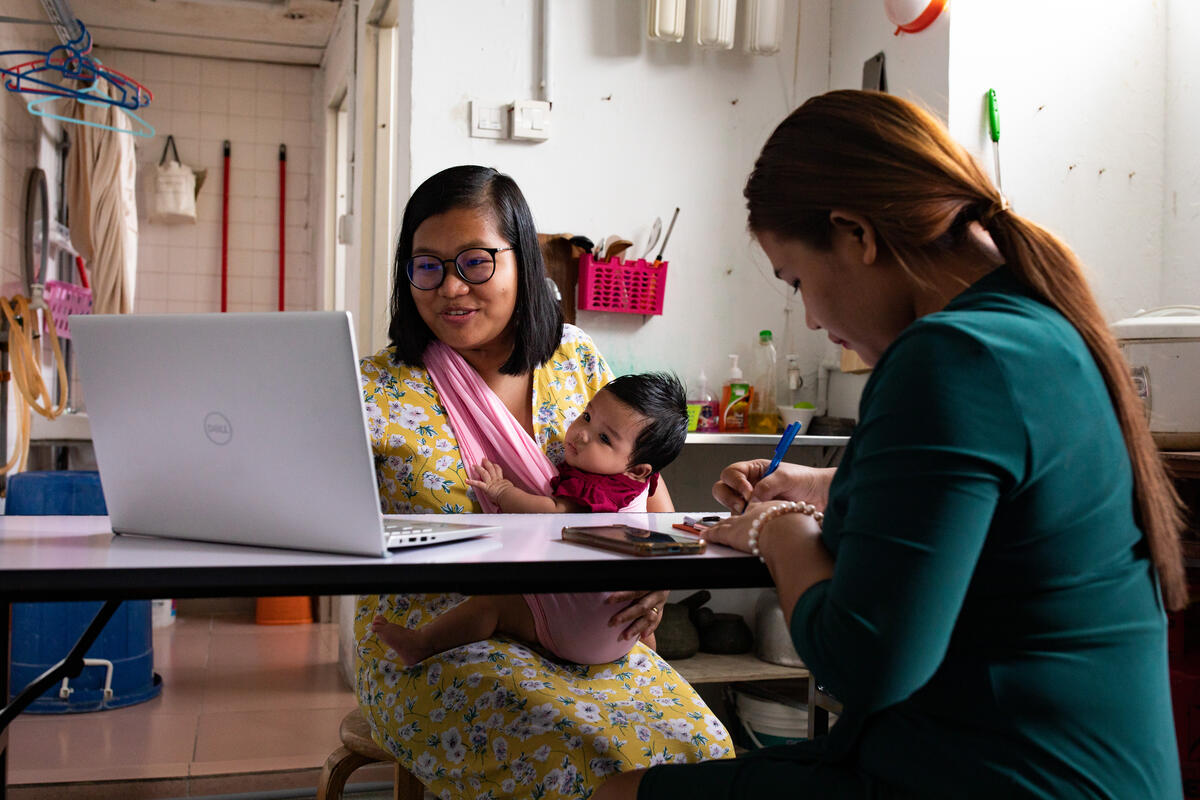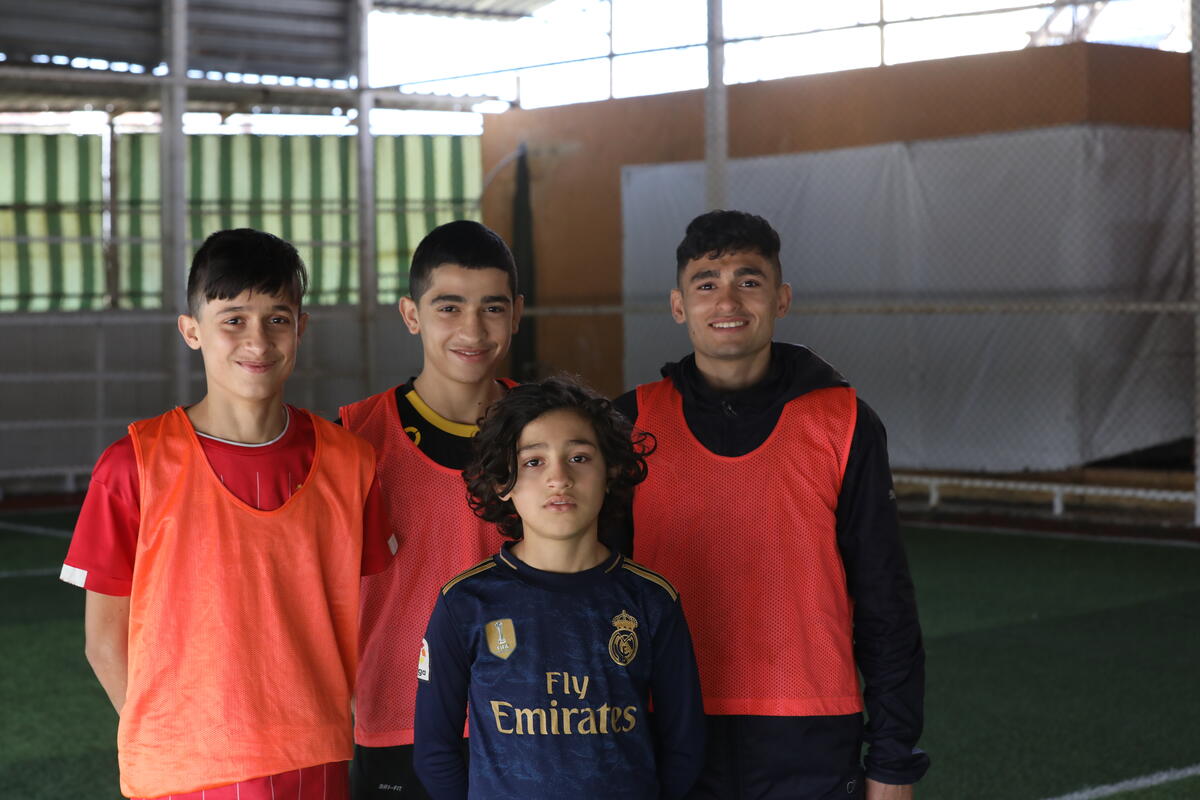Afghan refugees see eye to eye on specialised clinic
Afghan refugees see eye to eye on specialised clinic

QUETTA, Pakistan (UNHCR) - Guldasta, a 32-year-old Afghan widow, is waiting to see the light.
After struggling with poor eyesight for years, she has just been assured by an eye surgeon that her problem can be solved when she gets tested for spectacles at a free eye clinic at Pakistan's Mohammad Kheil refugee camp.
"I've heard old people complaining about weak eyesight due to old age, but had no idea it could happen to me," says Guldasta, waiting her turn at a refractometer machine. "My eyesight started to blur a bit and for a few months I could not see people and other things clearly. But thanks to the clinic, I will be seeing clearly again."
Guldasta is one of many refugees to benefit from a three-day eye clinic organised in early June by the International Catholic Migration Commission (ICMC), an implementing partner of the UN refugee agency. Together with Layton Rehmatulla Benevolent Trust (LRBT) and Rotary International Pakistan Chapter, ICMC provides community services in Mohammad Kheil camp, which hosts 40,000 Afghan refugees in Pakistan's western province of Balochistan.
Ian Milestone, ICMC's programme manager in Quetta, explains how the clinic came about: "After having a similar successful eye camp in Chaman's Afghan refugee camps, we decided to have one at Mohammad Kheil. The French government has been kind enough to help us through donations for the camp."
He adds that most of the refugees are facing eye problems due to poor hygiene care, as well as heat and dust.
Dr Chakar Khan, an eye surgeon from LRBT, says that most of the cases he has seen are curable. "On the first day of the clinic we checked 721 patients. Most were people who needed medicine prescriptions with minor problems of infections and sight problems," he says.
Of the nearly 2,500 refugees screened, some 400 were provided with spectacles while close to 300 more complicated cases were referred for surgery in Quetta's LRBT hospital, where the operation and medicine are provided free of charge to the refugees.
Such free services are a relief to refugees like Guldasta, whose two young sons sell fruits for a living. "I knew I was losing sight fast, but we could do nothing about it as a journey to Quetta costs 200 rupees [almost $4] and another 500 rupees [around $9] for check-up and medicine. Buying glasses would have cost even more," she says.
Another patient, Sakhidad, had complications in his left eye. "The doctor said I need a thorough check-up at their hospital in Quetta. This will solve my problem and I am happy that it's being done without any charge," he says.
"The eye clinic was meant to help refugees with eyesight problems, eye infections and for those who had developed other complications," says Dr Zahid Jamal, from UNHCR's Health Section in Quetta. "It was also meant to enhance health facilities at the refugee camp."
Mohammad Kheil camp has three basic health units and one central health unit providing round-the-clock emergency services. Dr Jamal notes that while these facilities provide basic health services to the refugees, there is a need for more specialised check-ups like those provided by the eye clinic.
By Babar Baloch
UNHCR Pakistan








